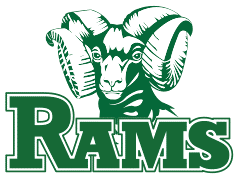Schoolwide Committment to Civic Learning

Repost from March 23, 2021
The seventh session of the Civics Across the Curriculum webinar series was held on Thursday, March 18, 2021. This year’s theme builds on the theme from the originally scheduled Democracy Schools Network Spring 2020 convening, “Every Teacher is a Civics Teacher: Best Practices for Civic Learning and Organizational Supports.” View a recording of the session.
The program featured Grayslake Central High School staff members from various departments, sharing the many ways that they have managed to bring civics into their classrooms and curricula.
- Jason Janczak, Social Studies Department Chair
- Georgia Brown, Social Studies teacher
- Brian Centella, Life Fitness teacher
- Jim Plaza, Social Studies teacher
- Lora Ciferri, Math teacher
Jason Janczak began the presentation by laying out goals of the Democracy School team for improving the civic health of their school:
- Fully embrace the “Portrait of the Graduate, a part of the school’s strategic plan, which has civic skills and dispositions embedded throughout.
- Extend civics across the curriculum.
- Develop new and more robust opportunities within Government classes for student engagement.
The panel addressed the many ways that civics was seamlessly infused into their practice, with both civic learning experiences and classroom culture.
Georgia Brown described several ways that various projects focused on key elements and indicators of the Democracy Schools’ model: teamwork, collaboration, leadership development, and inquiry. Her students participate in C-SPAN’s StudentCam, an annual national video documentary competition that encourages students to use digital tools and think critically about issues that affect our communities and our nation. Students research, interview experts, and create a video that responds to an overarching question that serves as the year’s theme.
In considering civics in the Life Fitness program, Brian Centella realized that there were many things that teachers were already doing that were grounded in civics. He elaborated on the PE Leader program in his department that empowers students as leaders, promotes teamwork, and directly addresses students’ social and emotional learning. He also spoke about conflict resolution as an important skill that is an integral part of the curriculum and how this contributes to a healthier classroom (and schoolwide) climate.
Jim Plaza is a strong believer in “getting his students outside the classroom walls so that they can experience a larger world (which might sometimes be virtual), in order to build their identity as global citizens. He is an instructor in the Big History project which offers a different kind of view of humankind’s history, and especially promotes student inquiry and reflection. His students tackle the topic of sustainability and explore past attempts, as well as current efforts. Students even develop their own proposal and identify a local organization that might be interested in contributing to a solution.
Lora Ciferri is a teacher of Applied Math Decision Making (AMDM), which is about using math skills to solve everyday problems. The course is rooted in problem-solving, teamwork, and reflection. Students begin the course by considering what skills high school students need to develop in order to function in the real world; this leads to developing classroom norms and expectations. The class also allows students to work with students that may have a very different skillset from their own; she feels that one of the greatest attributes of the course is students’ development of an awareness and appreciation of each other’s strengths.
The panel discussed how the changing landscape during this past school year may have compromised some of their original plans. However, their ability to pivot and look for new opportunities in this kind of learning environment led to some new (and satisfying) experiences:
- In Jim’s Sociology class, students participate in a “Random Acts of Kindness” project in the community; this year, he refocused it on home and school, which gave students a deeper connection to the two institutions that were available sources of support during a pandemic.
- Georgia noted that asking students to attend community meetings has become easier since all those meetings have become virtual.
- Brian remarked that several topics that normally would be a part of Life Fitness classes were compromised by the lack of in-person instruction. This provided a perfect opportunity to focus more on what emerged as a bigger priority: social and emotional learning.
- Several teachers have been interested in developing a version of the Lyceum, a project developed by John Pellikan at Prairie Ridge High School. The intention of the activity is to provide a schoolwide forum for students to consider societal and ethical dilemmas. In order to accommodate the nature of the school year, these discussions were adapted to the classroom level, with the hope of eventually expanding it to the entire school.
The commitment to civics by teachers at Grayslake Central High School has provided a stunning example of the possibilities. The first step is acknowledging what is already in place by considering the elements of the Democracy Schools model and where they are being addressed in your school. We suspect that all schools have more “civics across the curriculum” than they realize!
